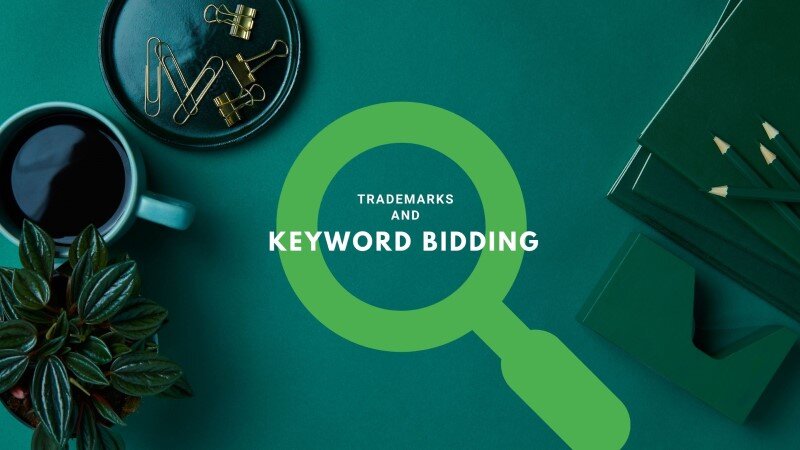Trademarks and Keyword Bidding
Trademarks and Keyword Bidding
Can you use a competitor’s trademarks in keyword bidding? Can they use yours?
You’d expect that since having a trademark registration gives the owner exclusive rights to use that trademark, you could not use that trademark for keyword bidding for Google Ad placements or other digital advertising services.
Apparently, you can.
Should you?
According to the online marketing gurus, you should!
What does this mean for you, as the owner of a registered trademark? At first glance, this seems to be a very shadowy grey area, where integrity and fair competition play tug-of-war with underhanded tactics to allure customers towards alternative offerings! Let’s dig a bit to understand how it works.
Keyword bidding refers to the practice of advertisers who bid for their adverts to be delivered when someone searches for a specific brand name. Many businesses habitually use the trademarks of their competitors as keywords in their advertising campaigns, to try to attract customers to their own products or services.
Is this legal? What can you do if your competitors are using your trademark in their digital advertising campaigns?
In the cases that have been heard by courts so far, the general conclusion has been that bidding on a competitor’s keyword in a Google Ads campaign does not usually result in trademark infringement. In most cases, the use of the trademark for targeting the advert to a specific audience has not been shown to cause confusion among consumers. In fact, consumers searching online expect to find a range of alternatives in the results page delivered by search engines.
While at first you may think that someone using your trademark in this way might impact negatively on your business, the flip side is that it could be beneficial, as it means that you too can bid on your competitors’ trademarks as keywords.
However, proceed with caution as trademark experts believe that there is likely to be an increase in the number of trademark infringement cases being heard in courts around the world. With the escalating use of mobile devices, which have smaller screens, it’s becoming increasingly difficult for consumers to distinguish which results are advertisements from which are organic search results. If it can be shown that consumers are genuinely confused about the origin of the goods and services advertised, then there may be a chance of establishing trademark infringement.
Can anybody bid on trademark keywords?
Google allows anyone, even competitors, to bid on each other’s keywords. The search engine’s aim is to provide information that matches what their customers are searching for. They also want advertisers to compete and drive up the cost per click (CPCs) so that they earn more revenue, and so they are happy to display ads which target a specific trademark keyword search.
Can you use trademark keywords in the actual ad copy?
While there are some variations in the level of restrictions in certain geographical areas, for ads targeting the UK, Ireland, Canada, USA, Australia and New Zealand, at present Google allows use of another’s trademarks in ads in the following circumstances only:
Resellers can use a trademark or brand name in their advertising copy if the landing page offers the specific products or services of that trademark.For example, if your business is a clothing store, you could use LEVI’S in the wording of your advert, if you genuinely sell LEVI’S jeans.
Affiliates and partners can also use trademarks in their ad copy. Where a trademark owner has licensees who are permitted to use their registered trademark, they can submit a form that notifies Google that specific partners are authorised to do so. They can revoke it when necessary too.
If a trademark owner forbids affiliates to use their trademark for keyword advertising, then the onus is on the owner to police this and to take steps if the affiliates infringe on the terms of their agreement. Google does not get entangled in trademark infringement cases between other parties.
Informational sites can use a trademark or brand name to review or provide information about the products or services branded with a specific trademark. For example, you could use the brand name APPLE AIRPODS in an advert to draw consumers to a page where you have reviews of the product.
If someone is using your trademark in the copy of a Google Ad in ways other than those described above, this could well infringe your own trademark rights. In this case, you can submit a complaint and ask Google to remove the advert. On average Google takes about 6-8 weeks to respond to such complaints. You might also want to contact your lawyer to see what other options you have!
Ultimately, the trademark owner is responsible for protecting their trademark and ensuring that it is not abused by competitors in keyword bidding and digitally delivered adverts.

